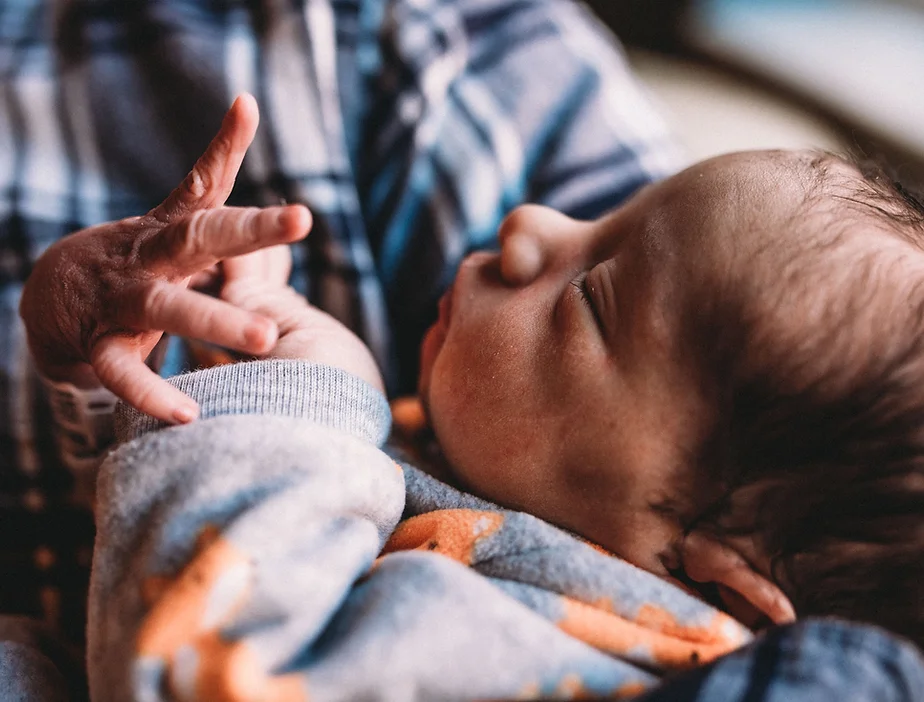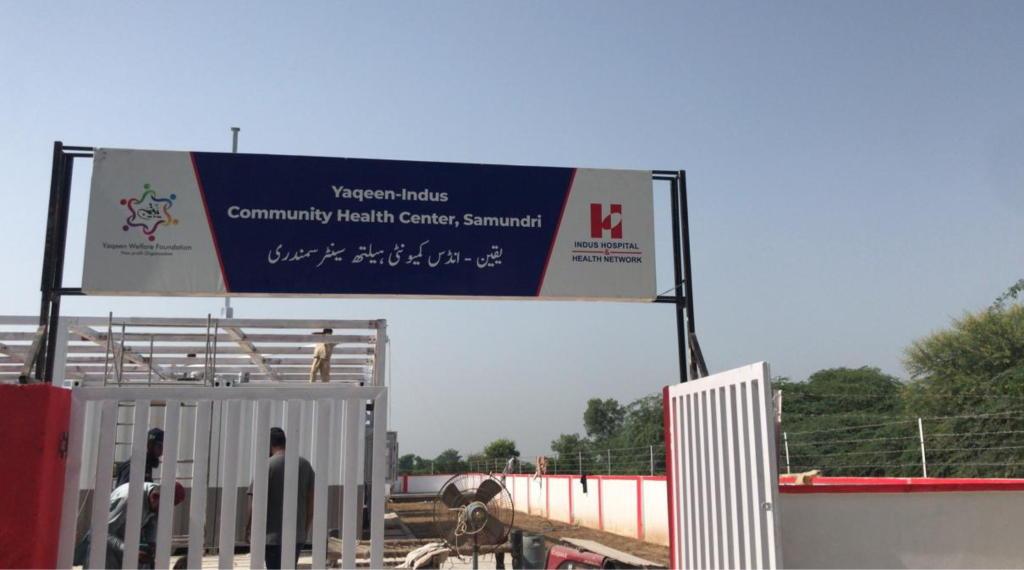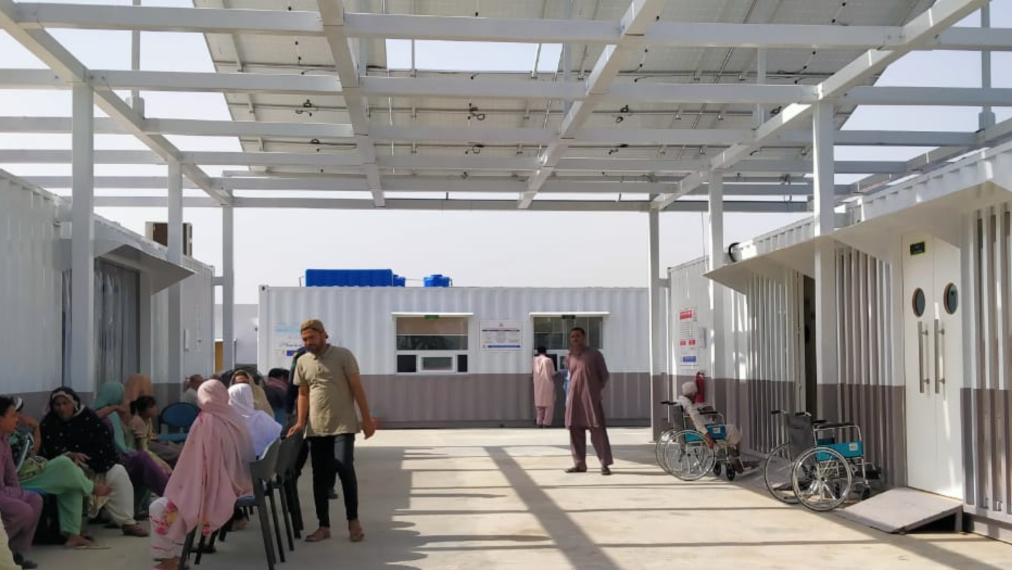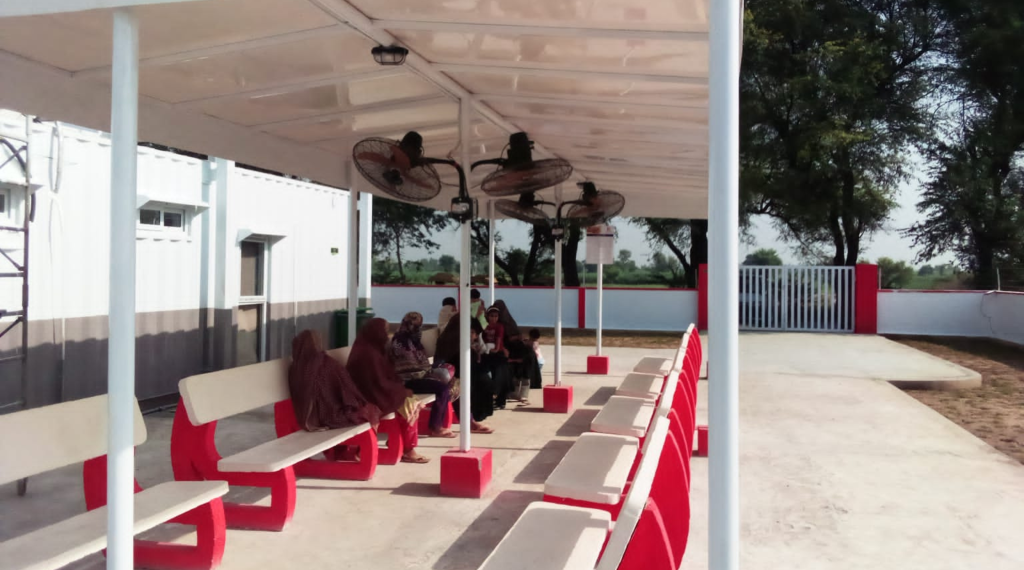HELP HEAL
For thousands of children today in Pakistan, the biggest challenge they face is a health challenge. Their chances of surviving until their fifth birthday is minimal and their chances of doing so are less than they were a decade ago. For many homes, getting access to a good hospital or clinic is very difficult and sometimes impossible.
Overall, 32% of Pakistani children are at higher risk of death than they were 10 years ago. Every hour, every day more than 500 mothers lose a small child. In the past, more than four million children died. Those who survive their childhood are confronted with adult death rates that exceed those of 30 years ago. Life expectancy, always shorter here than almost anywhere else, is shrinking. In some Pakistani villages and slums, it has been cut by 20 years and life expectancy for men is less than 56 years.
We at Yaqeen foundation cannot continue to watch this happen without contributing to better health outcomes.
Yaqeen strives to provide evidence-based health interventions that produce tangible improvements to the community’s wellbeing. We aim to remove barriers to health so that the community and those who have no access to health facilities can reach their full potential as agents of change in their community.The goal of the Help Heal program is to tackle issues related to health in an impoverished community.
Providing an affordable clinic for thousands of children, women and men who have no access to a hospital will bring down child-mother mortality rate, it will lead to reduction of childhood death, and lead to healthy children with bright hopes for future and indeed a healthier nation.
Program Overview
Yaqeen Help Heal Programme aims to partner with governments, organizations and individuals to establish a primary health clinic, which will serve a community of thousands of people. This is to bring basic health care facilities to individuals who otherwise will not have easy and affordable access to it. Free medical examinations, lab testing, and basic medications will be given to children, women and families with no or low means of income.
Guidelines
- Inspect the site for the clinic for its suitability to the program prior to the establishment of the clinic. The assessment will based on the needs of the community and access to any health facilities.
- To reduce costs while maintaining high quality service, our clinics will be registered with university-affiliated hospitals for secondary referrals and consultations.
- The Help Heal program will provide free medical examinations, lab testing, and basic medications to members of the community who otherwise would not be able afford it.
- Data regarding the progress of clinics, including number of patients seen, medications dispensed, tertiary referrals and expenditures will be shared on our website on a quarterly basis.
- To maintain accountability; details regarding budget and expenditures will be shared with permanent members on monthly basis as well as upon request.

Every hour, 500 mothers in Pakistan lose a child.
For every 1000 people in Pakistan there is only 1 physician.
Yaqeen Indus Health Clinic
PROJECT DESCRIPTION
Yaqeen Welfare Foundation and Indus Hospital are collaborating to build Yaqeen Indus Health Clinic. This is one of the core projects of Yaqeen Welfare Foundation. The main purpose is helping the marginalized communities with necessary basic health facilities. Yaqeen Clinic will be located at Khidderwala Gojra Road, Samundri, Faisalabad, Punjab Pakistan.
Most of the marginalize communities are living within the surrounding areas of proposed location. We plan to start the clinical services with public health programs (HCV, Malaria, Typhoid, mental health, etc.) and introduce community engagement activities. The site has potential, and because of huge population of the Tahsil there is a greater need for healthcare services and community interventions in the population
The clinic will provide the following services free of cost to the poor families of the area.
- Medical consultation and referral to tertiary care centers as
necessary.
• Follow up care for common medical problems including diabetes,
hypertension and hyperlipidemia
• Free medication as needed.
• Immunizations and vaccination will be available for infants and toddlers.



